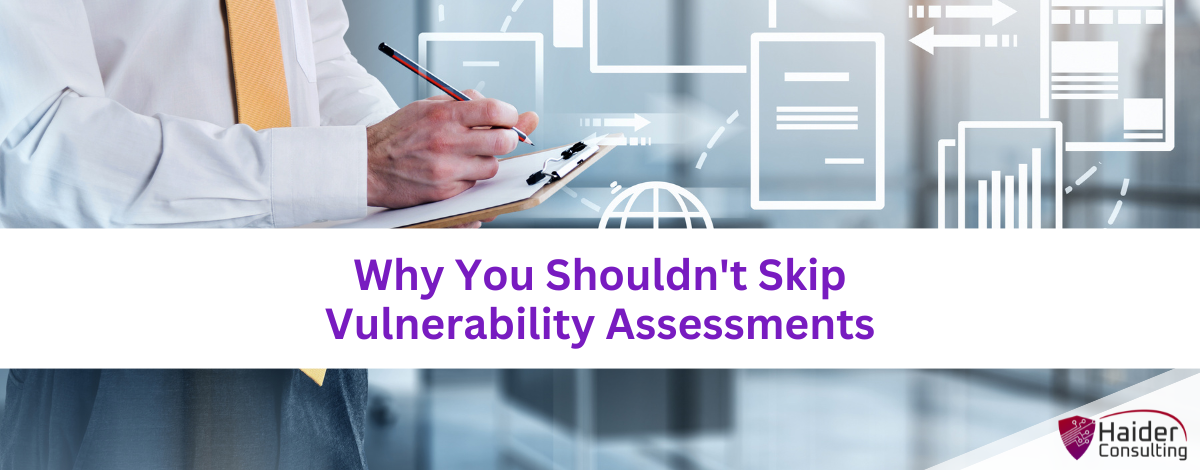Cyber threats are always evolving, with hackers finding new methods to attack computer systems and networks.
For any business, large or small, it’s crucial to take proactive steps in cybersecurity. Regular vulnerability assessments are vital. These assessments systematically identify and prioritize weaknesses in your IT infrastructure that could be exploited by attackers.
Some businesses skip vulnerability assessments, thinking they are too expensive or only necessary for large companies. However, these assessments are essential for all businesses, regardless of size. The risks of ignoring them can be significant.
In fact, in 2023 alone, over 29,000 new IT vulnerabilities were discovered, marking a record high.
This article discusses the importance of vulnerability assessments, their benefits, and the strong cybersecurity posture they help maintain. We’ll also cover the risks of not conducting these assessments.
What Makes Vulnerability Assessments So Important?
The internet is full of risks for businesses, and cybercriminals are always searching for weaknesses to exploit. Once the crooks find vulnerabilities, they might use them to:
- Access sensitive data without permission
- Launch ransomware attacks
- or Disrupt important business operations
Vulnerability assessments are essential because:
- Hidden Weaknesses: In complex IT environments, many vulnerabilities are not immediately apparent. Regular assessments help find and fix these weaknesses before they can be exploited.
- Evolving Threats: New vulnerabilities are constantly being discovered. Regular assessments help keep your systems updated and secure against the latest threats.
- Compliance Requirements: Many industries require regular vulnerability assessments to ensure data security and meet privacy regulations.
- Proactive vs. Reactive: A proactive approach, where vulnerabilities are found and fixed swiftly, reduces the risk of expensive breaches. A reactive approach, addressing issues only after an attack, can lead to significant financial loss and operational disruptions.
The High Cost of Skipping Vulnerability Assessments
Some business owners might see vulnerability assessments as just another expense. However, ignoring these assessments can end up costing much more. Here are some possible consequences of not conducting vulnerability assessments:
Data Breaches
If vulnerabilities aren’t identified and fixed, your systems remain open to attacks. This can lead to cyberattacks where sensitive data and customer information are stolen.
Financial Losses
Data breaches can result in large fines, legal problems, and the costs of recovering and securing data. Cyberattacks can also disrupt business operations, leading to lost revenue and decreased productivity.
The current average cost of a data breach is $4.45 million, up 15% over the last three years. As these costs keep rising, maintaining robust cybersecurity is crucial for the survival of any business.
Reputational Damage
A security breach can seriously hurt your company’s reputation. It can make customers lose trust and might stop them from doing business with you in the future. Both business customers and individual consumers are wary of companies that have been hacked.
Loss of Competitive Advantage
Cyberattacks can hurt your ability to innovate and stay competitive, ultimately affecting your company’s growth over the long term. Instead of focusing on innovation, your company may end up having to focus on fixing security issues.
The Benefits of Regular Vulnerability Assessments
Conducting regular vulnerability assessments can greatly benefit your business in many ways, including:
- Stronger Security: These assessments help you find and fix weaknesses, reducing your risk of cyber attacks.
- Better Compliance: Regular checks ensure your business meets industry regulations and data privacy laws.
- Peace of Mind: Knowing your network is safeguarded lets you focus on running your business.
- Lower Risk of Expensive Breaches: Being proactive with vulnerability management can prevent breaches and the high costs that come with them.
- Smarter Decisions: The insights from assessments guide better decisions about where to invest in security and how to allocate resources.
What to Expect in the Vulnerability Assessment Process
A vulnerability assessment usually follows these key steps:
- Planning and Scoping: Decide the extent of the assessment, including which systems and applications will be checked.
- Discovery and Identification: Employ specialized tools and techniques to scan your IT infrastructure for known vulnerabilities.
- Prioritization and Risk Assessment: Sort vulnerabilities by how severe they are and the potential impact they could have. Prioritize fixing the most critical vulnerabilities first.
- Remediation and Reporting: Create a plan to fix the vulnerabilities you’ve found. This should involve applying patches, making configuration changes, and updating security measures. Produce a comprehensive report detailing the vulnerabilities, their risk levels, and the actions taken to remedy them.
Investing in Security is Investing in Your Future
Vulnerability assessments should be part of your routine to keep your cybersecurity strong. By regularly checking for and fixing vulnerabilities, you can:
- Greatly lower your chances of cyberattacks
- Protect important data
- Keep your business running smoothly
Remember, managing cybersecurity is continuous. Regular vulnerability assessments are crucial. Don’t risk your company’s future—invest in these assessments to protect your assets.
Contact Us Today to Schedule a Vulnerability Assessment
When was the last time your business was checked for security weaknesses? Regardless of your company’s size, we can assist. Our team will conduct a thorough vulnerability assessment, identify any weak spots, and provide practical recommendations.
Contact us today to arrange a vulnerability assessment and enhance your security.
Book My 17-Minute Call





